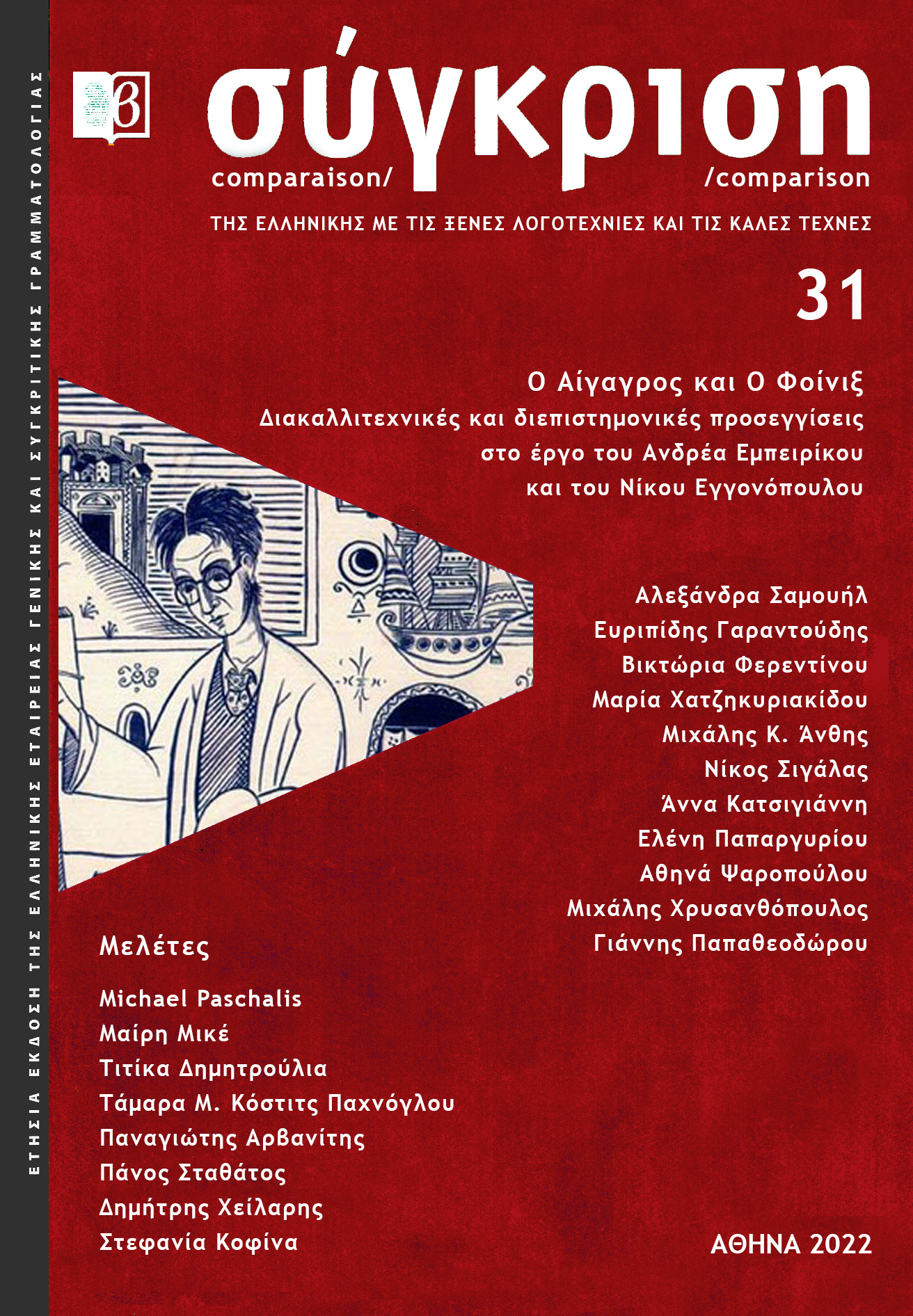ΓΙΑΝΝΗΣ ΠΑΠΑΘΕΟΔΩΡΟΥ, «Αλλά τους τρελλούς τους κλείνουν εις τα φρενοκομεία». Υπερρεαλισμός, ψυχανάλυση και ηθικός πανικός στη δεκαετία του ’30
Abstract
“Crazy people should be locked up in the asylum”. Surrealism, psychoanalysis and moral panics in ‘30s.
In this paper, I discuss the ways in which the reception of psychoanalysis through surrealism diffused into the wider social discourse of popular culture during the interwar period. My central argument is that surrealism in Greece was connected to intellectual and mental illness. Thus, the concept of "scandal" is inscribed in the rhetoric of “moral panics”, that "paranoid modernism" causes. The polemic against surrealism emphasized its relationship with madness and the “margins” of the literary canon. On the other hand, this “cultural blockage” became a very productive field for surrealist poets to gain their own artistic autonomy.
Article Details
- How to Cite
-
Παπαθεοδώρου Γ. (2022). ΓΙΑΝΝΗΣ ΠΑΠΑΘΕΟΔΩΡΟΥ, «Αλλά τους τρελλούς τους κλείνουν εις τα φρενοκομεία». Υπερρεαλισμός, ψυχανάλυση και ηθικός πανικός στη δεκαετία του ’30. Comparison, 31, 120–132. https://doi.org/10.12681/comparison.31279
- Issue
- Vol. 31 (2022)
- Section
- Articles

This work is licensed under a Creative Commons Attribution-NonCommercial-ShareAlike 4.0 International License.
Authors who publish with this journal agree to the following terms:
- Authors retain copyright and grant the journal right of first publication with the work simultaneously licensed under a Creative Commons Attribution Non-Commercial License that allows others to share the work with an acknowledgement of the work's authorship and initial publication in this journal.
- Authors are able to enter into separate, additional contractual arrangements for the non-exclusive distribution of the journal's published version of the work (e.g. post it to an institutional repository or publish it in a book), with an acknowledgement of its initial publication in this journal.
- Authors are permitted and encouraged to post their work online (preferably in institutional repositories or on their website) prior to and during the submission process, as it can lead to productive exchanges, as well as earlier and greater citation of published work (See The Effect of Open Access).



